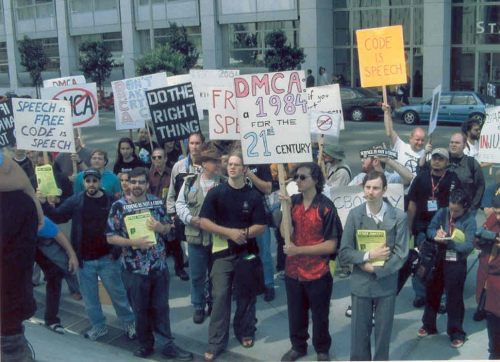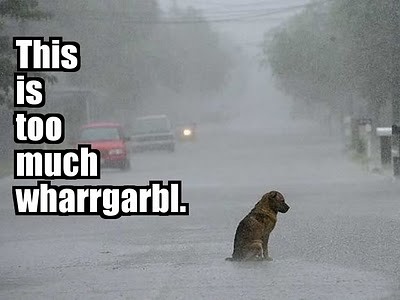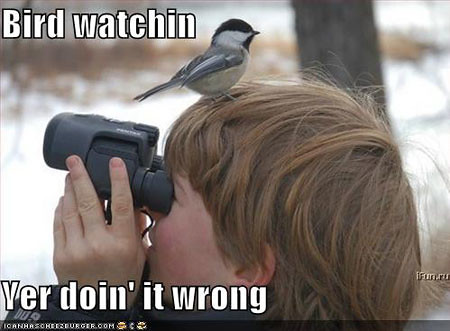Although the book has been out for a number of months, available for purchase and download, Coding Freedom finally has a dedicated home on the Interwebz. Based on my graduate research in anthropology and my dissertation, the book takes an up front and close look at various personal, affective, ethical and political dimensions of free software development. While the book is not on Debian per se, there is one chapter dedicated to the project and a whole lot of Debian developers were interviewed for the book. You can read some reviews and if you like what you see, take a dip.
Coding Freedom: The Ethics and Aesthetics of Hacking
Color Scheme Suggestions
Ok here is the new (and final) cover:
So I really like my book (on free software) cover but I am not convinced by the yellow/red color scheme. Any suggestions that would work with the beautiful blue background?
I am also going to suggest placing a black outline around the birds too as they blend a little too much in the background.
Engendering Change
I have always thought the question of gender in FLOSS far from simple … And so when I came across a peer review publication on the topic that made it too simple, I along with Christina Dunbar Hester — the real heavy weight of our piece — penned a response. It goes well with Jon maddog Hall’s moving piece coming out for Alan Turing’s 100th birthday.
What a Hackable World?
I really don’t know what to make of this Cisco-made video “What a Hackable World.” It is sort of interesting that Anonymous and Lulzsec made it in but the video is not all that clever. And what up with the nerd-o-matic sys admin (most sys admin I know are more hoodie, less nerdie). But can anyone explain what/who the main featured dude is supposed to be? Hacker detective/destroyer? Cisco customer?
Going to São Paulo next week
First, is that image really the best LOLcat referencing Brazil that exists out on the Internets? I sure hope not as it is sort of lame but it was the only one I could find (in the 30 seconds I looked, which I admit, is not all that much time).
But all of this lolcat in Brazil stuff is really to say, I am heading to São Paulo tomorrow to give a talk on Anon on Thursday at this conference. If you are an Anon in the city and can make it, please do. If you are not Anon and are still interested, come along as well ;=)
If there are Debian developers as well in the city, it would be great to meet at some point. I am there from Tuesday morning to Friday night.
Now for the harder photo request: Free Dmitry!
So one my favorite fieldwork photos is the one above and I would love to include it in my book but I have no idea where I got it from much less who took it. The photo was taken during a San Francisco protest against the DMCA, and more urgently at the time, also calling for the release of Dimitry Sklyrov (and we were all listening to Richard Stallman who was giving a small speech and I am on the right hand side of the photo, furiously scribbling notes)
I am looking for a high quality photo from one of the many Dmitry Sklyarov protests that were held in San Francisco or San Jose–a photo that is either under CC license or given to me with formal permission to publish (I have forms to get official permissions). As I mentioned in my previous post, the book will be published with Princeton University Press with a CC license.
Hack Week On the Media
So much reporting on hacking is …. so bad (no surprise to readers here).
Worse is that term term was bandied out constantly during the News of the World Scandal. In contrast to this historical tradition, On the Media has curated a stellar “Hack Week” that provides depth, breath, and nuance; the producer of the show, Alex Goldman, poured an enormous amount of time, labor, and thought in compiling a rich set of materials to get at the term hackers, the many facets of hacking (from phreaking to hardware hacking) and best of all, interviewed the fantastic Marcia Hoffman from the EFF on one of the laws, the Computer and Fraud Abuse Act, whose massiveness (and vagueness) has the potential to do a lot of damage and which is often wielded against hackers (and many non-hackers as well).
There is also an audio section on the term hacker, which I myself might have done slightly differently, emphasizing, that alongside the MIT hacker (covered so well by Steven Levy) phone phreaking (only called as such in 1973 but well and alive before then) fed into a transgressive tradition that was not simply about malicious hacking nor about the media portrayals that started to explode in the 1980s. The interview gets at the fact that there are differences and hackers can be quite sectarian but I might have pushed this fact a little further.
All in all and after the ad nauseum use and abuse of the term hacking during the News of the World scandal (and its overabuse with Anonymous), this collection is the perfect antidote.
On Leaving NYU/NYC for Montreal/McGill
Despite being on sabbatical last academic year, life was hectic and chaotic leaving me with next to no time to write entries here. Anonymous, which I had worked on for a few years, exploded. I was excommunicated from my house (due to a flood/something likely mold making be very sick) and had to commute to Princeton from the far reaches of Manhattan where I crashed at a friends house for 5 months, while fighting my landlords. I then decided to go on a job hunt primarily as I did not know what would happen with my housing situation in NYC but I was also pursuing some interesting opportunities. Though the housing issue was eventually resolved, in May a rare and enticing opportunity arose. Come January 2012 I will be joining the Art History and Communication Department at McGill University as the Wolfe Chair in Scientific and Technological Literacy.
The decision to leave MCC NYU was torturous. The faculty is stellar. The graduate students are top notch and cream of the crop. And the digital media faculty is a force of nature, perhaps one of the deepest and most dynamic departments when it comes to the study of digital media. They also know how to treat their junior faculty right, which made it a place I respected and am deeply indebted to.
But this type of opportunity is rare and it helped that NYC as wonderful as it is, is not my cup of tea. I wanted to eventually settle in one of the large Canadian cities, and Montreal was on the top of my list. I get to join one of the best universities in the world and a department whose work on digital media, STS, and politics converges with much of my own.
The position provides resources, time, and room to cultivate scholarly work, help build a program of some sort in Science Technology Studies at McGill, and also engage with the public about the ethics and politics of science and technology. I will be teaching a class to joint BA/BS majors on scientific and technological controversies, a topic close to my heart. I also hope to create an open courseware website for my hacker course, which I will teach sometime in the 2012-2013 academic year.
It is all that I can ask for, well, except for the weather. I would be lying if I did not admit that the winter scares the heck out of me… I know some days I will feel just like this….
Congressional Quarterly on Hackers
When I was in graduate school, there were two publications that when I found out about them, they changed my life, for the better. One is the Annual Review of Anthropology (and there are many other Annual Reviews) and Congressional Quarterly Researcher. Both, albeit in very different ways, provide clear and crisp road maps and resources related to the topic under discussion. I had the “pleasure” of writing an ARA on digital media and I had always hoped that there was a Congressional Quarterly on hackers and hacking.
Well now there is one and I have to say, they have done a fantastic job. I am not surprised. They tend to be pretty matter of factual and present many sides to an issue. The author, Marcia Clemmitt, did just that, covering open source, transgressive hacking, Anonymous, and cybersecurity among many other issues. Out of all the recent publicly oriented publications on hackers and hacking, this is the one that is the most in-depth but accessible.
The only hitch is that the article is behind a pay wall but most universities subscribe to them and you can order an individual copy.
update: I forgot to mention that there is an excellent segment in the 24 page report by Daniel Flower, which covers the history and significance of the protests. It is compact but the best account I have seen.
Birds of a Feather for Academics (aka how to study digital media)
There is nothing more dispiriting for a scholar of digital media to see the astounding plurality of forms, formats, and politics reduced to one of a handful of tepid categories such as 1) network society 2) peer to peer production 3) digital activism and 4) the absolute most vacuous terms ever, Web 2.0.
The problem is summed up rather nicely by a bunch of folks who published an article by the name of Birds of the Internet that every scholar interested in digital media should read:
“Observing participation without any guide to its diversity is like watching birds with no sense of what distinguishes them other than that they fly and squawk (when of course, many do neither). Rather than
lumping every instance of Internet-mediated participation into boxes labeled ‘digital
culture’, ‘virtual reality’, ‘online community’ or ‘network society’, a field guide could aid in observing differences and testing, rather than proliferating classifications.”









